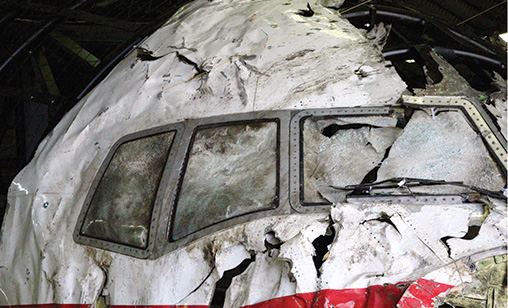News Backgrounder
The great divide in aviation security
The International Air Transport Association (IATA) has made another plea to the world’s governments to establish global standards for aviation security after it was revealed that 40% of countries worldwide had failed to meet the basic recommendations of the 40-year-old Chicago Convention. Chief correspondent, Tom Ballantyne, reports.
December 1st 2017
Global standards are critical to effectively manage the security of a global industry, said IATA director general and CEO, Alexandre de Juniac, earlier this month. Read More » “States are responsible for implementing effective security measures. Annex 17 of the Chicago Convention, which has been in place for four decades, makes this clear.
“But shockingly 40% of states have struggled to implement even its baseline requirements. This is not good enough.”
 |
De Juniac said:“Airlines have operational know-how. Governments have the financial and intelligence resources. We have to put them together effectively in a continuous dialogue that is focused on improving security.”
IATA said aviation security could be strengthened by addressing the following four areas:
• Closer government to government cooperation to eliminate the long-term challenges of extraterritorial measures such as the requirement that airlines conduct interviews with passengers travelling to the U.S.
• The universal application of global standards, particularly the International Civil Aviaion Organisation’s Global Aviation Security Plan (GASeP)
• Failure to share information between governments and the industry results in differing – and less efficient – responses to threats. An example of this problem was the confusing 2017 ban on Portable Electronic Devices (PED) by the U.S. and the UK.
• Efficient implementation of new and existing technology such as the use of Explosive c Trace Detection to lift the U.S. ban on large PEDs in the cabin.
“Threats to aviation are real. We understand unilateral additional measures of an extraterritorial nature may be unavoidable at certain times. But these cannot be long-term solutions,” de Junaic said.
He welcomed the development of the Global Aviation Security Plan (GASeP) by the International Civil Aviation Organization (ICAO) and urged its swift implementation.
| 'We cannot predict the next security challenge. But we know some things for sure. Our common defense is stronger when governments and the industry work together' |
| Alexandre de Juniac IATA director general and CEO |
“Development and implementation are different things—as we clearly see with low levels of compliance to Annex 17 requirements. Capacity building will be critical. States will need to integrate the priority actions outlined in GASeP into their respective National Civil Aviation Security Programs if it is to be effective.”
“The failure to share information among states manifests itself in many ways. At its most tragic, it is clear that failure to share information contributed to the loss of the 298 people aboard Malaysia Airlines MH17. The aircraft, en route to Kuala Lumpur, was shot down over the Ukraine in July 2014.
Technology, said de Juniac, played a critical role in keeping aviation secure. “For example, the utilization of explosive trace detection (ETD) screening was integral to the lifting of the U.S. ban on large PEDs in the cabin. And the use of ETD will soon become an Annex 17 standard.” IATA highlighted two areas for improving the development and use of technology: for certification processes to be streamlined and coordinated across jurisdictions and that information technology (IT) should be employed more intensely so that passenger information can be referenced at airport checkpoints.
“IATA’s Global Passenger Survey highlights that passengers are frustrated with security and border control processes; and they are willing to share information if it makes these processes easier,” said de Juniac.